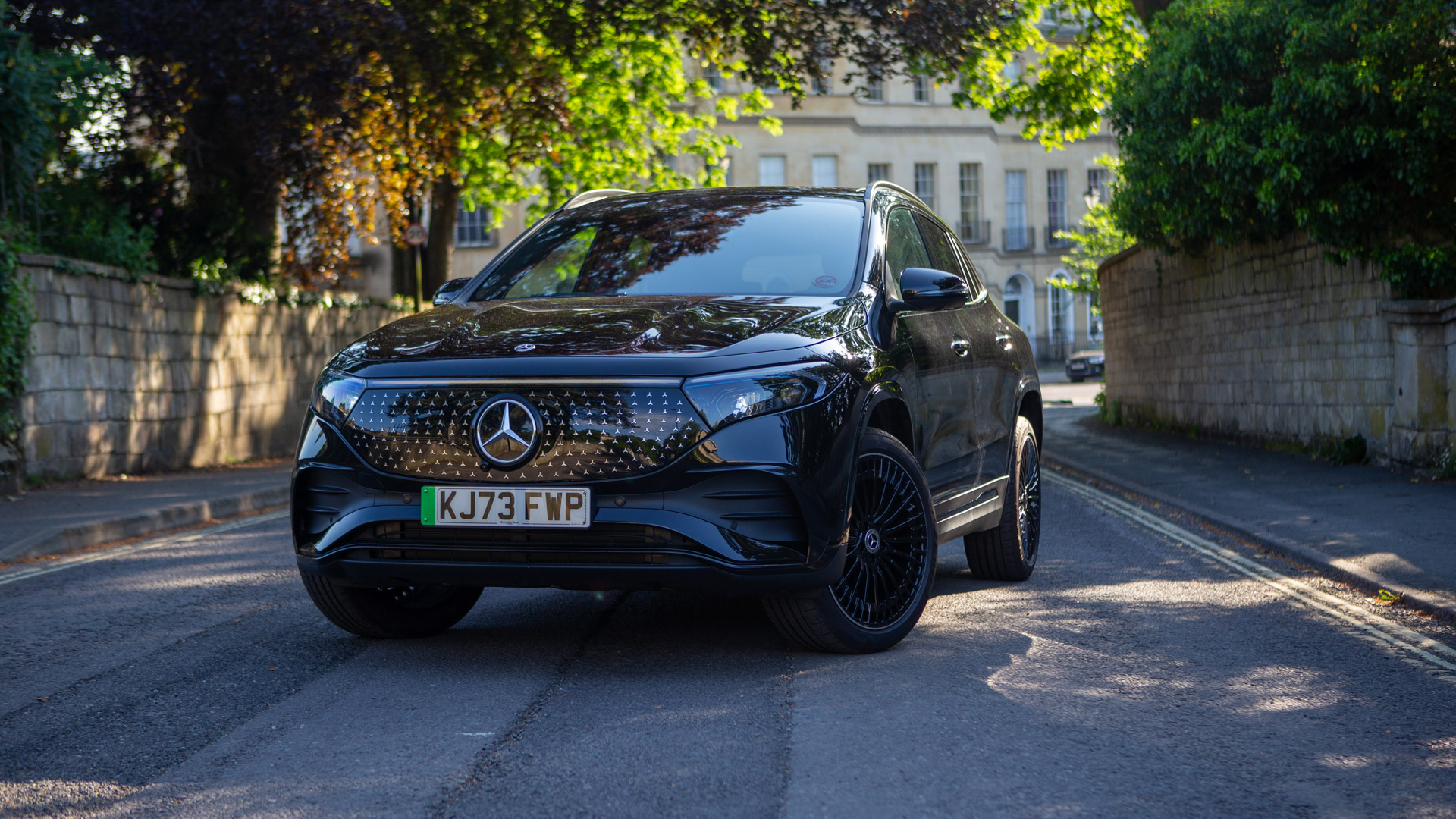
The Mercedes-Benz EQA first launched in 2021 and is the smallest model in the company’s EQ range of electric vehicles. Rather than the A-class hatchback, it closer resembles the GLA SUV model – which also comes as a plug-in hybrid, should you prefer that option.
While I think it’s a slight shame that this isn’t the same dimensions as the hatchback, this is still pretty compact and feels ideal for the city as well as the open road. It’s also had a facelift in 2023 which not only brought it more in line with the newer EQ models, but also increased its range, making this a seriously appealing option for those travelling longer distances.
The EQA 250+ now has a larger battery, giving it up to 348 miles. There’s also the option of four-wheel drive from the EQA 300 and 350, though the range drops considerably on these to around 265 miles.
In many ways, the EQA is one of the most appealing EV models in Mercedes’ range, especially seeing it starts from under £50k. I spent a week with the car to see how it performs as a daily runaround and I have to say, I was impressed.
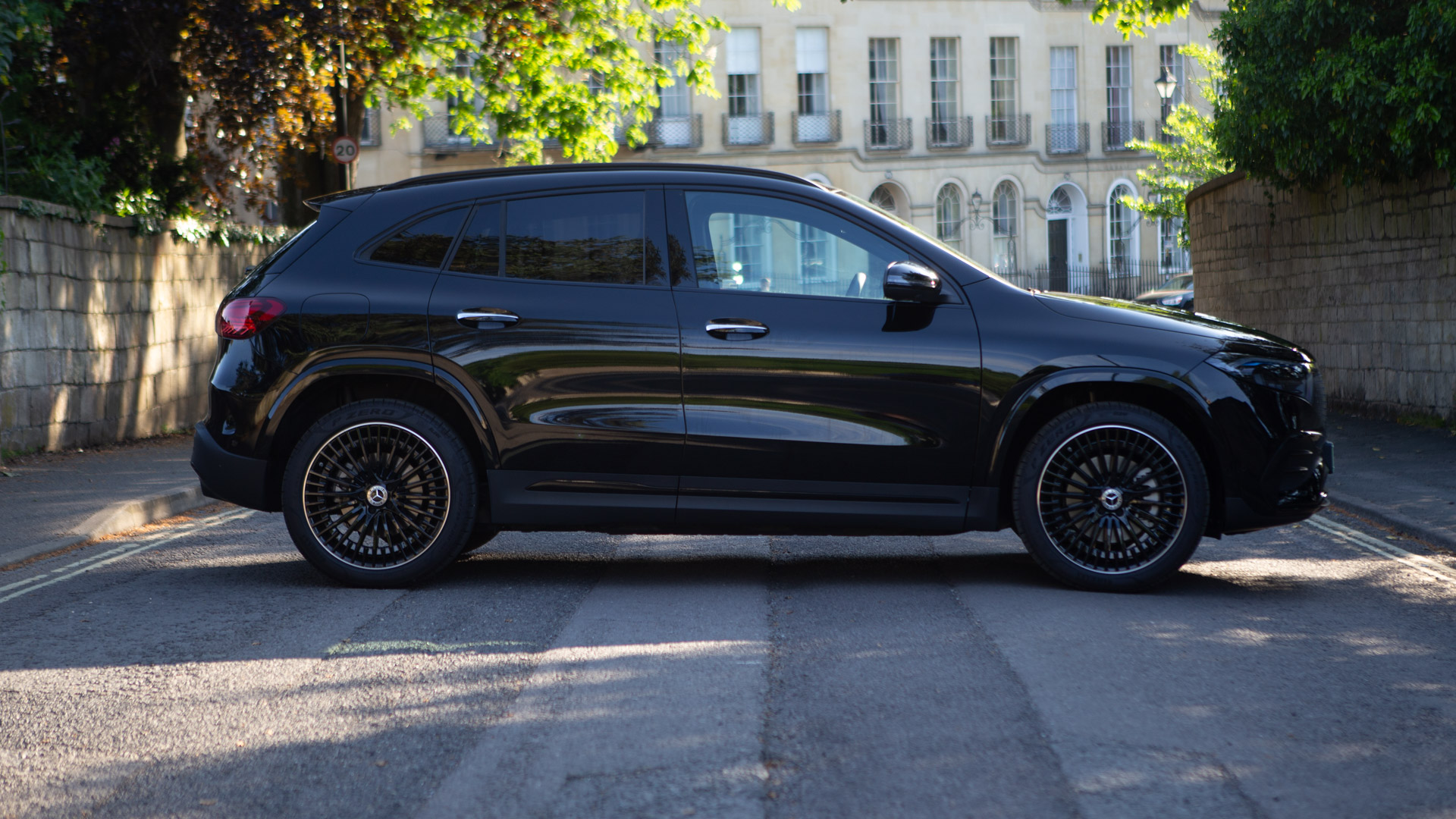
How much does the Mercedes-Benz EQA cost?
As I just mentioned, the EQA starts from just £49,750 on the road, which is the EQA 250+ Sport Executive model. The EQA 300 4MATIC starts from £53,010, while the EQA 350 4MATIC starts from £54,510. The only real extra is £1495 for the assistance package, which includes the adaptive cruise control and steering assist to give you a level 2 autonomous system.
The model I tested was the EQA 250+ AMG Line Premium Plus with assistance package, priced at £59,305 on the road. Its closest competitor is the BMW iX2, which is around the same price but doesn’t match the EQA for range. BMW does also offer the slightly cheaper iX1 though, which starts at around £46,000.
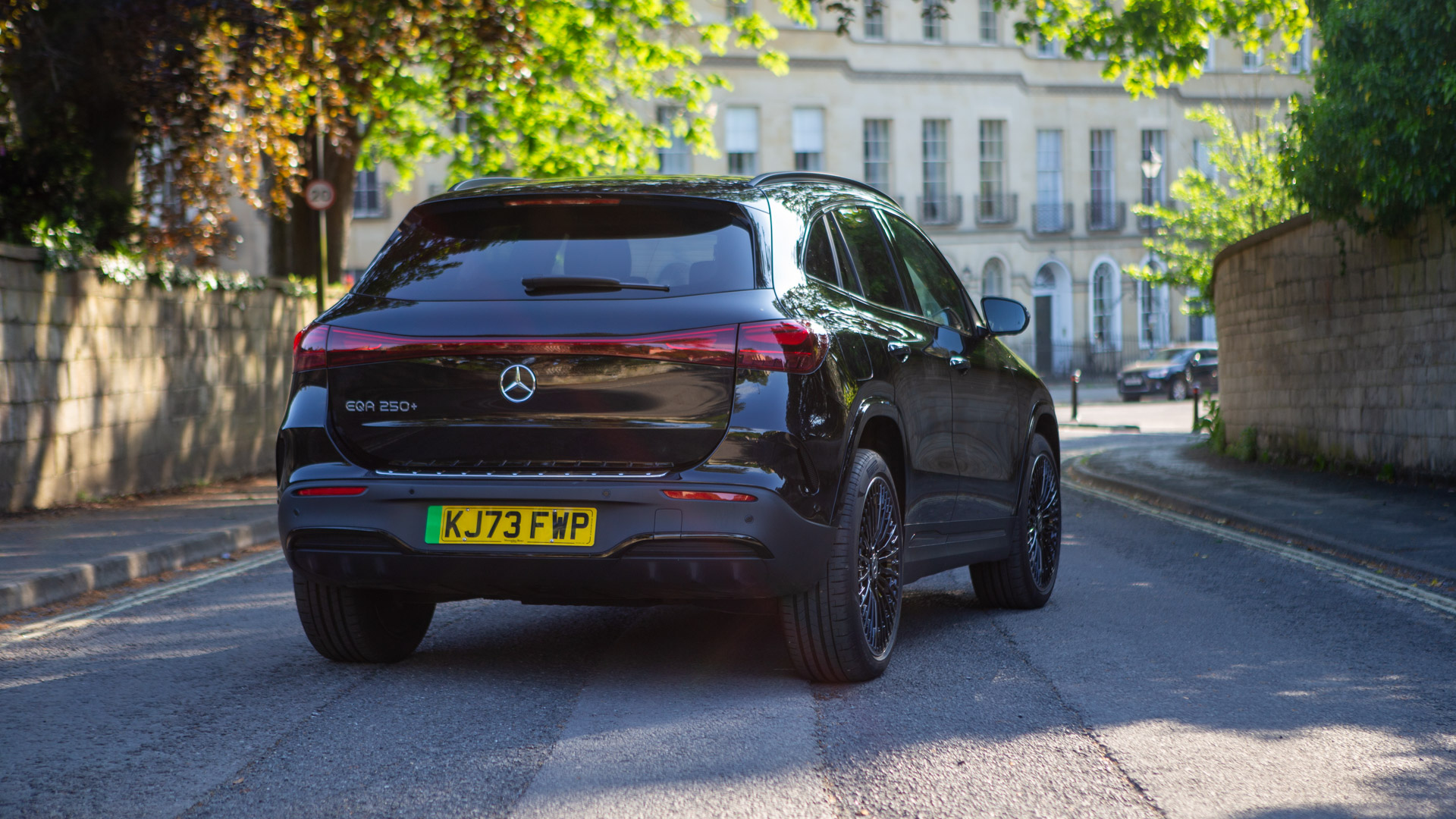
What's new on the Mercedes-Benz EQA?
The EQA is very much based on the GLA model, with very similar dimensions. It’s identical in width and wheelbase, though a fraction longer at the front and rear. This latest update brings it closer in looks to the rest of EQ electric range.
The solid grill now features the mini three-pointed stars for texture and loses the chrome lines across it. This not only makes the oversized Mercedes-Benz badge stand out even more but it also gives the daylight-running LED lightbar across the width of the front more impact.
At the rear, the car has also had a small update, giving a it a new rear spoiler and rear wheel arches. To be honest though, these are very subtle changes, and you’d really need to have both models next to each other to be able to tell the difference.
While the result is definitely an improvement, it’s by no means the prettiest of the EQ models. That compact SUV styling results in a slightly bloated look, sitting higher without having that full SUV proportion. The model I tested was finished in Cosmos black metallic and the larger 20-inch alloys, which is certainly more slimming but it still didn’t blow me away on approach.
In contrast, I think the current A-class hatchback is one of the nicest-looking compact cars on the market, so it’s a shame it's based around the GLA SUV rather than that. While the EQE and EQS models both have SUV versions, the EQA and EQB (as well as the now-defunct EQC) are all SUVs by default, without saloon versions.
Luckily, inside the EQA is really attractive and feels as premium as models twice its price. The ambient lighting includes the footwells as well as strips along the dash, the doors and the centre console – and even the retro-styled air vents – all fully adjustable via the display.
There’s a new steering wheel with handy controls for the cruise control features, telephone, audio and screen control. You can even use it to flip between display options for the driver display and head-up display.
On the AMG line models you get a slightly sportier seat with side supports and a choice of black leather with red stitching or a sage grey with white stitching. Both of which look premium, though my preference was the black leather option which I had on my test car.
A benefit of that SUV styling is internal space. There's a decent amount of headroom and room for rear passengers, plus there's a very generous boot, with 435 litres of storage space.
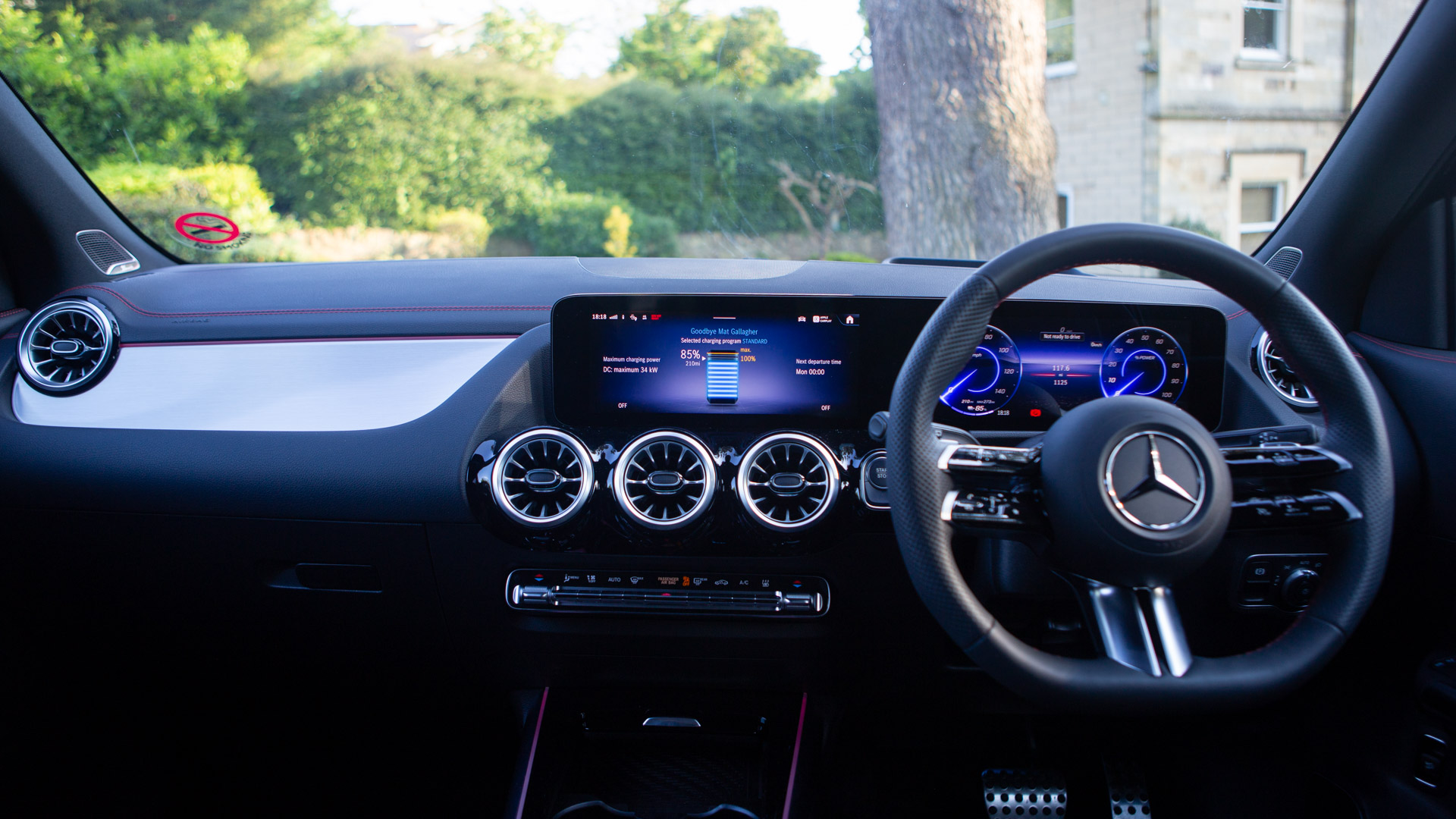
The tech inside the Mercedes-Benz EQA
You get a lot of tech as standard in the EQA, from the blind spot assist through to the parking package with a reversing camera. You also get everything that the MBUX system brings, including navigation, media playback, Android Auto / CarPlay connectivity, and access to premium subscription games and video services.
The two 10-inch displays for the driver info and the centre screen line up to create the illusion of one single widescreen extending from behind the wheel to the centre. While not as large as some, this still feels generous on a car of this size. On the top AMG Line Premium Plus model, you also get a head-up display and gesture control for the MBUX system.
This top model also get a sound upgrade from the standard or advanced Mercedes-Benz systems to the Bermester system. This 12-speaker, 590-watt system includes Dolby Atmos for incredible sound throughout the car.
You can also get active distance assist, active steering assist and evasive steering assist as part of the assistance package, which is an extra £1495 on all models. It’s a relatively small add-on and is worth it if you regularly travel long distances or a high number of miles.
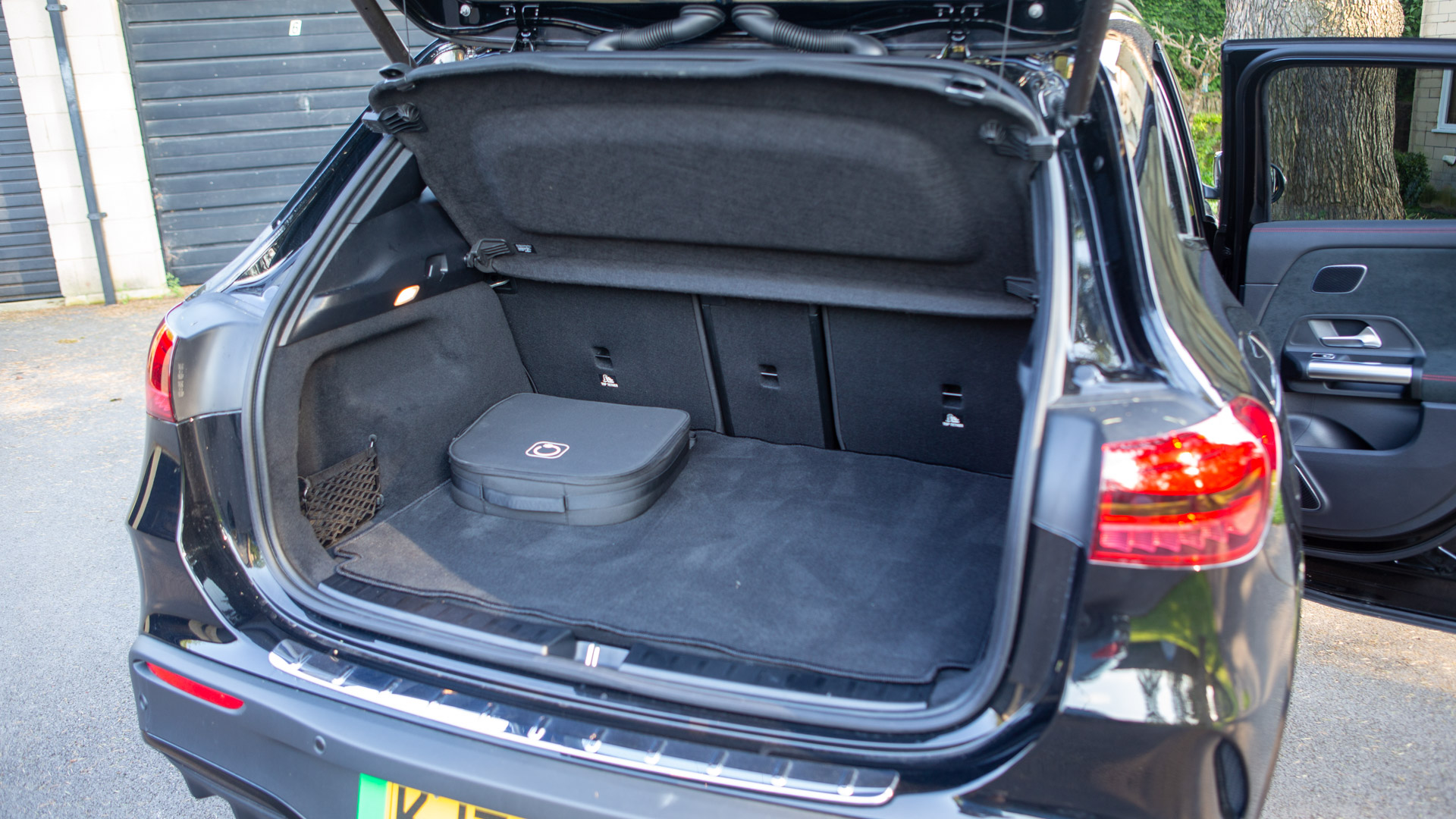
Performance and range
The EQA 250+ models all produce 190 horsepower and an 8.6 second 0-62mph from their 70.5kWh batteries, while the top-spec EQA 350 4MATIC delivers 292hp and a 6-second acceleration, despite a smaller 66.5kWh battery.
The model I tested had a combined range of 314 miles, though the base 250+ can do up to 348 miles. Anything over 300 is pretty acceptable these days, so all of the 250+ models are in that camp. If you spot for the 4MATIC models however, you are dropping to around 260 miles, which is a little low for longer distances.
It uses a 400v system with a maximum DC fast charge of 100kW, which in practice means just over 30 mins for 10-80%. That’s not bad at all, especially seeing you’re often pushed to get more than 100kW from most fast chargers in reality. You can also charge on DC at up to 11kW, which means overnight home charging from 10-100% in around 10 hours.
As with any electric car, you’re best off with a home charger if you can have one installed, for both the convenience and the cost of charging. If you’re starting off the day (or week) with 100% charge, you’re unlikely to need to use fast chargers accept for very long distances.
Driving the EQA around town feels nippy, with plenty of power and easy manoeuvrability. Despite the SUV height, it still feels like a city car which makes it ideal for a daily driver. Parking and getting around tight corners is easy thanks to a decent turning circle and those external cameras. Though there’s no easy way to active the parking cameras manually without putting the car into reverse – which can be handy for getting through tight entrances.
That added height does mean it's great on the motorway too – partly why so many buyers opt for these compact SUVs and crossovers. The ride is comfortable and quiet, making the miles just fall away on long drives, and without the range anxiety you get on some models.
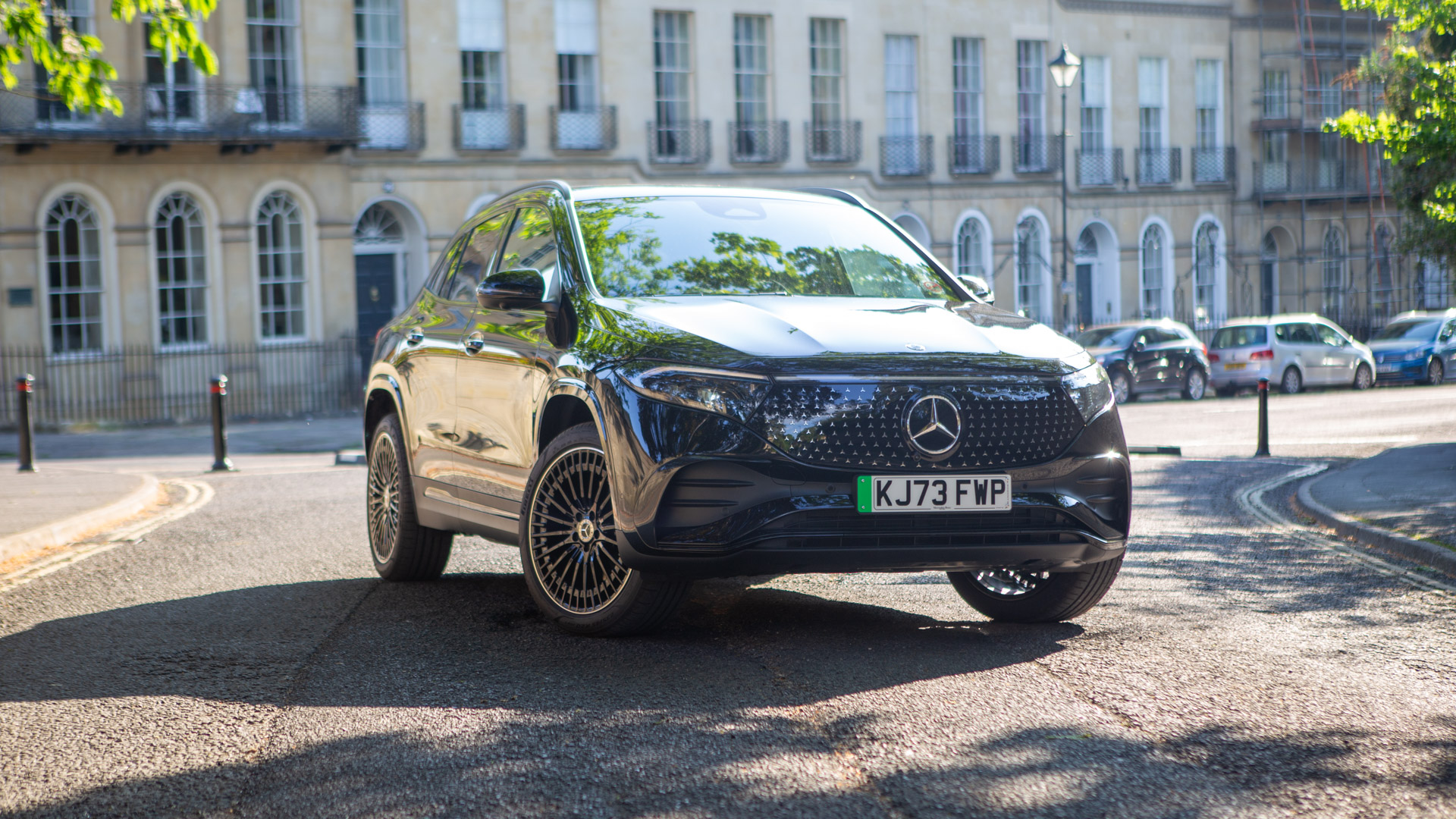
Should I buy the Mercedes-Benz EQA?
Despite slightly uninspiring looks, I really enjoyed driving the Mercedes-Benz EQA. It’s a really premium-feeling (relatively) small car with all the toys and gadgets you could want on it. It’s perfect for the city and still has the range – and height – to make it great for long distances too.
Though I still prefer the lower saloon designs, I appreciate the benefits of this higher stance, not least for adding a decent-sized battery to the car. While there are quite a few options around this price point, the EQA would probably be my pick, especially for the quality of the interior and tech features on offer – not to mention the range.






